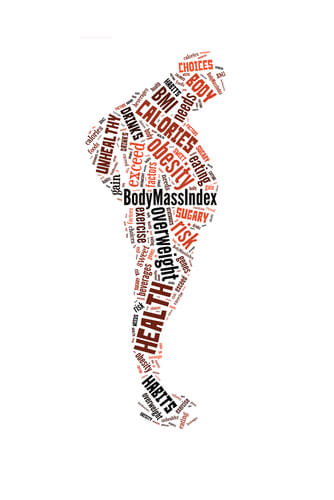
Irregular eating habits and an unbalanced diet can lead to several eating disorders. Obesity, the most prominent of them, is one such medical condition where an individual develops a high amount of body fat. Having a high amount of body fat, in turn, leads to increased chances of developing a medical condition and other health problems.
Such was the case with Bhaskar.
Bhaskar felt quite stressed when he moved to a new city for his new job. He was never good at making friends and would overthink many situations. He started binge-eating to deal with his stress. He would buy several packs of potato chips and keep on munching on them for hours, staying up late in the night, watching TV shows and trying hard not to think of anything.
A couple of months later, he realized that he had become obese and slowly developed a critical illness. Since his health insurance had no cover for a disease like that, he knew he had to shell out a lot of money to deal with that problem, which then resulted in more stress.
Obesity health risks
People who have obesity might be more prone to developing severe health conditions. The risk is always more than those who are not obese. Some of the health problems that overweight people can face are:
- Hypertension
- Diabetes
- High blood cholesterol
- Coronary heart disease leading to heart attack and stroke
- Problems in bones and joints
- Liver problems and gallstones
- Some forms of cancer
A lot of these problems could cause certain forms of critical illnesses. So if you are on an unhealthy eating regime, thinking that your health plan will take care of the problems that might arise, then you might be wrong. It is safest to opt for critical illness insurance to ensure that you are protected against such illnesses.
India is going through an obesity crisis where more than 135 million people are affected by it. This crisis, according to a recent study, is only expected to get worse, especially among young people.
While it is advisable to get health insurance which has support for critical health problems, it is also important to keep your Body Mass Index (BMI) in check. You should always make sure that you do not end up on the latter half of the weighing scale. Stress eating is one such factor that leads to numerous health issues around obesity. If you feel stressed, it is recommended that you consult a therapist to work around some of those underlying issues that could be resulting in stress.
The role of BMI
One of the ways that you can find out whether you are obese or not is by determining your BMI. The BMI is used to estimate the level of fat in your body, comparing it with your weight and height. Several web apps can help you calculate your BMI level by inputting your age, weight, and height.
The handy formula to calculate BMI is: kg/〖m^2〗^Herein, kg will calculate the individual’s weight and 〖m^2〗^will be their height (in meters), squared. The BMI for obesity starts at 25 points; the higher it goes, the greater the risk of having health problems due to obesity. Here are the different BMI levels that help define the various fitness brackets in individuals:
- BMI of 25.0 to 29.9 would mean Overweight (not obese)
- BMI of 30.0 to 34.9 would mean Class 1 obesity (low-risk)
- BMI of 35.0 to 39.9 would mean Class 2 obesity (moderate-risk)
- BMI of 40.0 or greater would mean Class 3 obesity (high-risk)
Waist size
Another way to find out the level of obesity is by looking at the waist size in inches. If you have too much fat around the waist, then it may lead to several health issues. Women who have a waist size of 35 inches and men who have a waist size of 40 inches might have more chances of having diseases that are related to obesity.
Most of these risk factors can be controlled if you bring a change into your lifestyle. You can start with eating a healthy, balanced diet — cutting down on your carb intake and eliminating junk from your body. If you are obese, then you can consult a doctor who can help you with a diet program and also recommend some exercises that can assist you with weight loss. Just loosing 5 to 10 percent of the current weight (considering you are obese), can significantly bring down the risks of having health issues related to obesity. Persevering healthy habits is also an alternative solution to obesity.


Comments